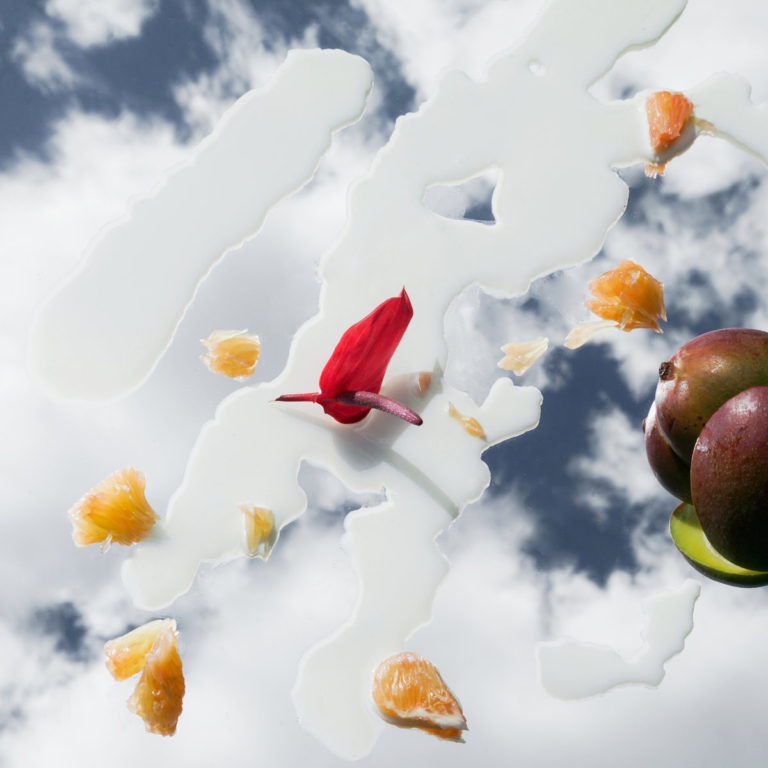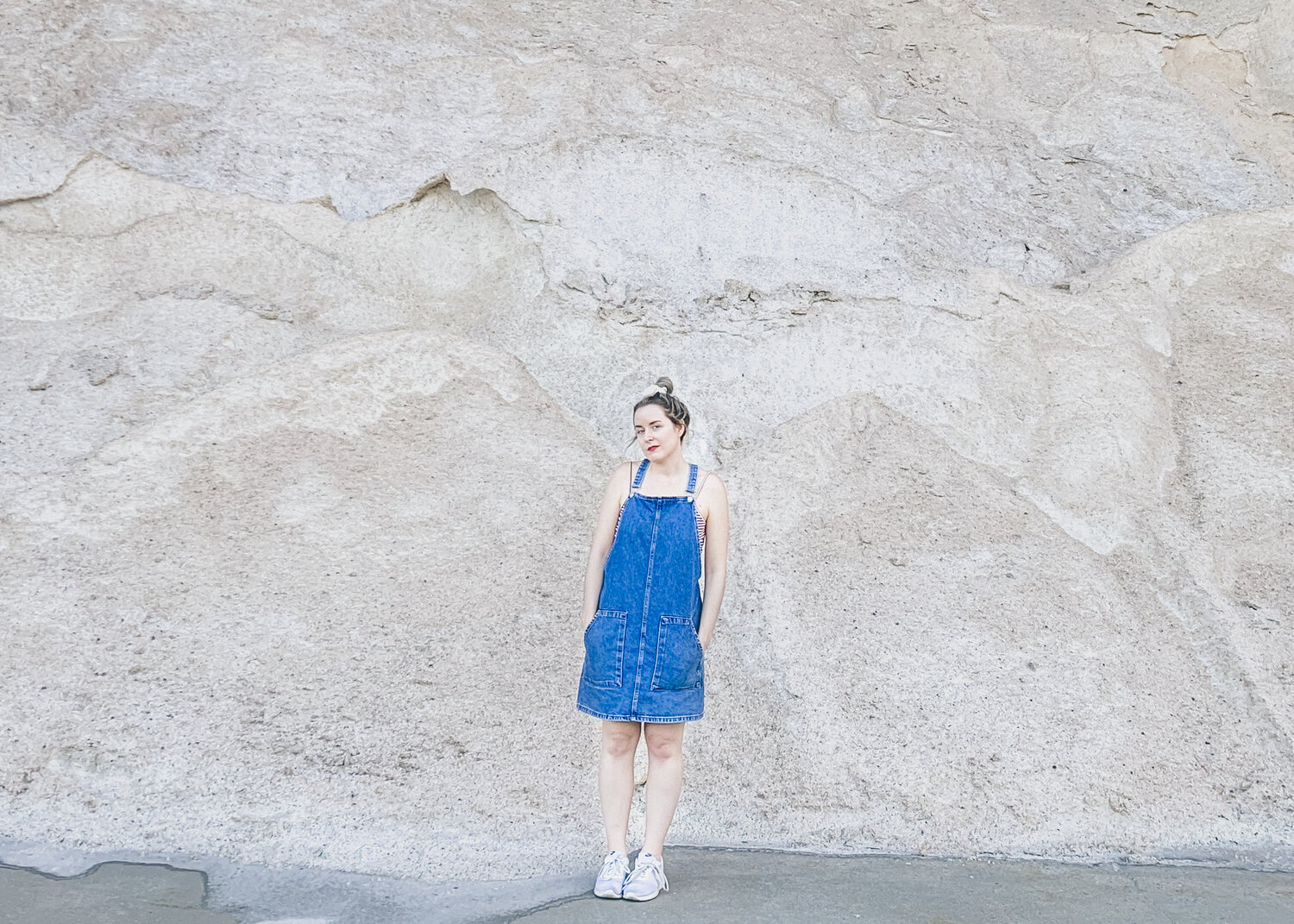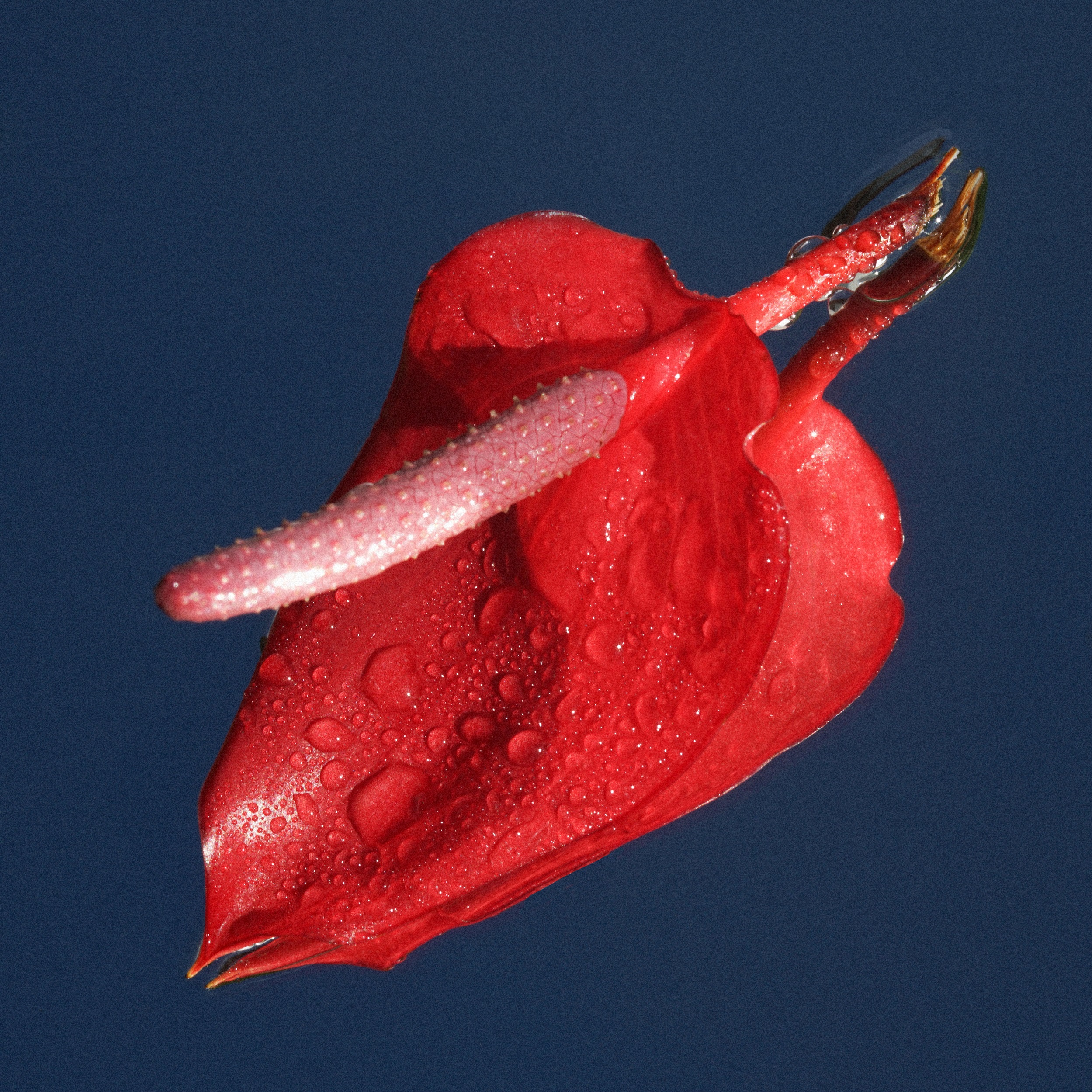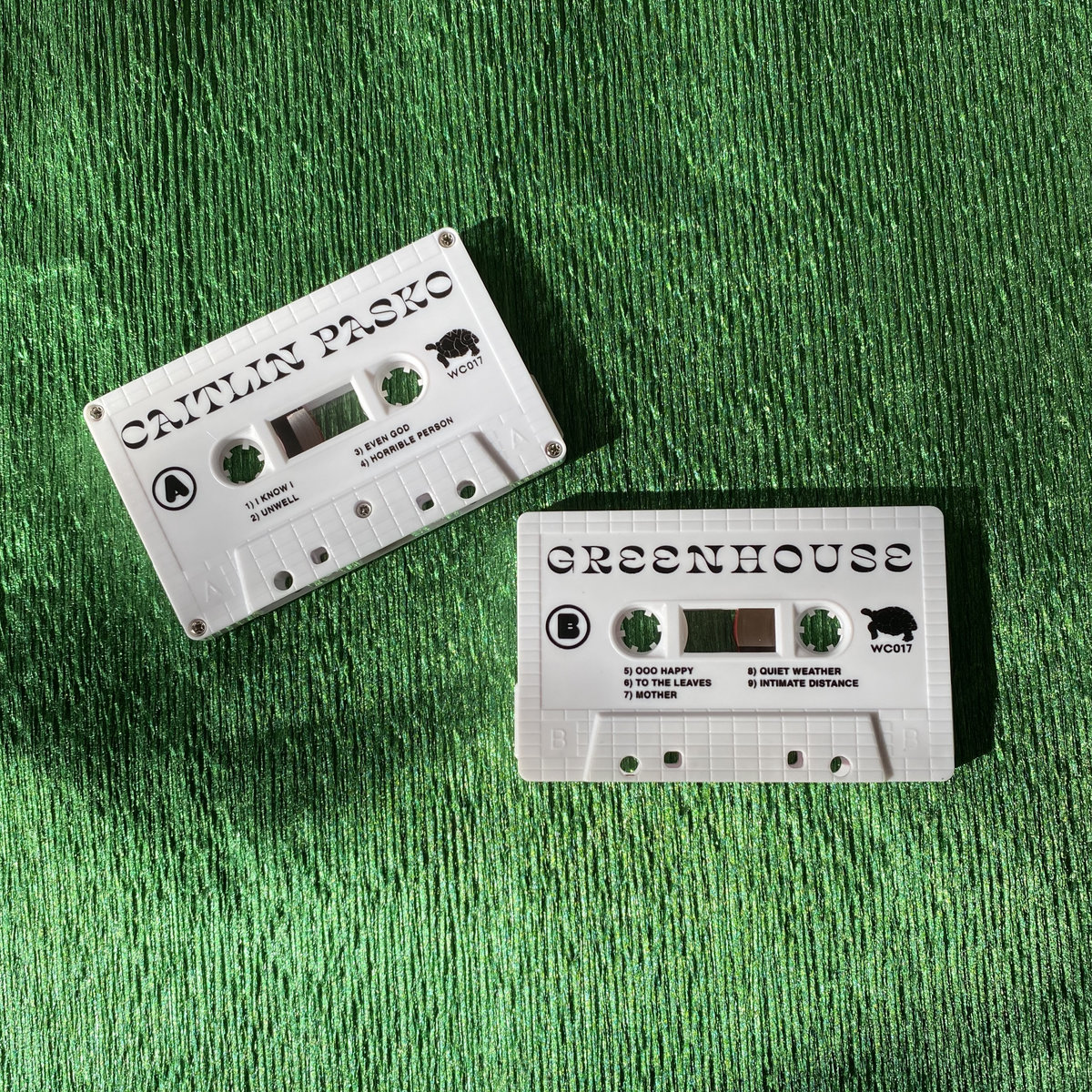Back in 2017, Brooklyn-based songwriter Caitlin Pasko released Glass Period, an EP centred on loss—of loved ones, of relationships, of that solid sense of self which is built upon such things. As we wrote at the time, “the dreamy vibe and melancholic piano capture the essence of loss, a paralysis where the air around you hums with shock and loneliness begins to leak through the gaps.” Despite the ethereal sound, there was an immediacy to the release, a kind of overwhelmed confusion. Within the churchly quiet, something huge unfolded, too big to grasp beyond the small portion in front of your face.
Now Caitlin Pasko is back with Greenhouse, a full-length album released via Whatever’s Clever that builds upon the foundations of Glass Period to craft a new space in which to explore identity and trauma. Written in the aftermath of an abusive relationship, the record again stems from raw emotion, and once more Pasko (along collaborator Henry Terepka) crafts soundscapes in which to sit and wrestle this trauma. But if the previous release held the loaded quiet of a chapel, then the new record lives up to its title too. A warmer room, open but not exposed, still subdued but cleansed by sunlight. The process of difficult reflection might be no different, but there is more clarity here, a wider view and wiser head. The sense of a fuller picture emerging from the silence.
But Pasko’s use of ambient tones mean that the silence is not quite silence at all. The space is never completely empty. Brighter though it may be, Greenhouse still holds a strange, haunted quality, a sensation that could be said to represent trauma itself. Where every absence is a lingering presence, and confusion threatens to undermine the surest convictions and beliefs. For reflection means to confront every version of the story, every variant of oneself.
But if Glass Period gave into this ambiguity, Greenhouse charts a path through by embracing its unique qualities. A sheltered and regulated space, shielded from cold snaps and pests alike. A space outside of the normal world, created with the sole intention of enabling growth. These songs might be haunted, but haunting is an inherently personal thing. A phenomenon that occurs only in isolation, at the dead of night. In order to confront our ghosts, we must see them clearly. To see them clearly, we must be quiet and alone.
This lies at the heart of the record, the way dark and challenging themes are suspended within soft, ethereal sounds. So often escapism is equated to a kind of retreat, a passive refusal to face up to reality, but here it is an active, necessary part of process. Plants do not escape life within a nursery, but grow strong enough to face it. Develop roots deep enough to last, and consolidate themselves as distinctive individuals able to face the winters to come.
We asked Pasko a few questions to get deeper into the processes behind the record, and how Greenhouse came to be.
I’m interested in the balance between escape and confrontation on the record—how the two are entwined, enable one another. Did you start out aiming for one or the other—comfort or combat—and how/when did you learn that both were necessary?
On Greenhouse, escape wouldn’t be possible without confrontation, but the confrontation on this record doesn’t come from a combative place — it comes from a place of self love and empowerment, and wanting to be healthy and free.
I think maybe you can’t truly escape something unless you confront it and do the work to truly understand it, and songwriting has always been my way of doing the work. My songs are my way of observing all of the micro-moments within a moment; my way of saying something I didn’t get to say; my way of sharing what I learned from an experience; my way of packing up and moving on.
I also didn’t consciously write these songs in an attempt to confront anything or anyone. I think, truly, I was just trying to document my thoughts and feelings as honestly as I experienced them. I began writing “Horrible Person,” for example, because I wanted to explore the feeling of emotional labor. “I shouldn’t have to explain it to you … I shouldn’t have to give you examples.” I was entangled in a relationship with a gaslighter, and I wanted to look deeper into my feelings of frustration.
“Horrible Person” was also the result of a self-imposed challenge to start writing a song away from my piano, using only my voice. I was forced to be especially honest and specific in my lyrics, because I didn’t have the emotion of the piano to lean into.
Forgiveness is a prominent theme, and it got me thinking about how making art fits into the process. Does it help or hinder it? To write about something is to focus on it, to return to it, to risk opening old wounds. Does it ever feel counterproductive to write about things so personal?
I absolutely opened old wounds in the making of this album. And my mind still goes dark in the days leading up to a show, when I’m practicing these songs daily and living inside of them. But I don’t regret writing about my personal experiences, because of the healing that went along with it. And sometimes it feels like the more personal and specific I am, the more universal the song ends up being and the more people it connects and resonates with. The end of “Horrible Person,” for example—the birthday text, the Venmo—these are small things that actually happened in my life, that I think a lot of people have experienced. And that connection is exciting to me.
And I think writing about personal experiences is important. I love listening to other artists’ personal songs, and reflecting on their experiences in relation to mine. I’m inspired by courage.
[bandcamp width=100% height=120 album=2944103962 size=large bgcol=ffffff linkcol=0687f5 tracklist=false artwork=small track=901087107]
Space and silence are important elements of the record. “Where caesuras are poetry,” to quote the notes. On a purely technical, how conscious are you of allowing such room into your songs? Is it something that emerges naturally? Something you work in as the song develops?
It’s an unconscious part of my songwriting, truly. It emerges naturally. I think my songs are psychedelic in that way. They breathe, almost, making it difficult to play them to a click, because the emotion of the song just isn’t the same when I do. And I love playing with tempo and dynamics.
Many of the tracks are written from differing points of view, but sometimes these are just different facets of your own character. I mean, ‘I Know I’ has you singing in harmony with yourself! I find myself taken by the idea that this a collaborative record conducted almost entirely within your own person—past, present and possible selves teaming up in the context of abuse and gaslighting—with the final track being the united Caitlin singing back. Does this jive at all with the process of creating the record? Did you find parts of yourself that surprised you, or merely channel what was always there?
For me, a crucial element to healing from not just the relationship and experiences that fed into Greenhouse, but previous relationships and life experiences, was hypnotherapy. I only had a handful of hypnotherapy sessions over the years, in between my regular talk-therapy sessions, but they were always pivotal points in my progress. I’d need to go home after the session and lay around and not make a sound, just rest. In those sessions, I’d pinpoint a version of my child self that was still carrying trauma, and I’d bring her forward to meet my adult self (or higher self, or internal mother). Hypnotherapy might sound bizarre to some, but as a visual learner and deep feeler it really worked well for me, and my songwriting reflects the work I was doing to heal.
[bandcamp width=100% height=120 album=2944103962 size=large bgcol=ffffff linkcol=0687f5 tracklist=false artwork=small track=232066191]
As the record ends with something like closure (or at least a reset, a fresh start), what does the future hold for your music? Is it exciting to be able to create without exorcising demons, and could the change in focus mean stylistic/musical changes too?
I’m in a healthy place, but I am still healing. Triggers can’t be avoided, and I have emotional setbacks, but I learn from them and I have support. I’m living my life alongside someone who has the most beautiful, grounding energy, and I’m looking forward to exploring peace in my songwriting and in my recordings—especially in contrast to the darkness circling around so many of us in the US and throughout the world right now.
Greenhouse is out now via Whatever’s Clever Records and you can get it from the Caitlin Pasko Bandcamp page.
Album art by Tonje Thilsesen, cassette layout by Benedict Kupstas




